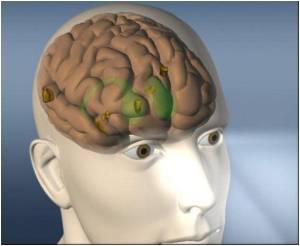Researchers in Geneva, Switzerland have used an advanced MRI and artificial intelligence technique to predict progressive decline in patients with mild cognitive impairment.

Haller and a team of researchers used two novel techniques to image the brains of 35 control participants (mean age 63.7) and 69 patients with MCI (mean age 65 years), including 38 women and 31 men. Patients were diagnosed with MCI based on a battery of neuropsychological tests, which were repeated on 67 of the patients one year later to determine whether their disease was stable (40 patients) or progressive (27 patients).
Using an advanced technique called susceptibility-weighted MRI, the researchers were able to generate scans with greater detail of the many blood vessels in the brain, including the presence of tiny leaks called microhemorrhages or microbleeds.
"The number of cerebral microbleeds was significantly higher in the individuals with mild cognitive impairment than those in the control group," Dr. Haller said.
The MRI scans revealed microbleeds in 33 percent of individuals with stable MCI and 54 percent of those with progressive MCI. Only 14 percent of the control participants had microbleeds.
The susceptibility-weighted MRI also revealed that compared to the control participants, individuals with MCI had significantly increased iron concentration in certain areas deep within the structure of the brain and reduced levels of iron in others.
Advertisement
Haller's team also analyzed the MRI data with support vector machines (SVM), an artificial intelligence technique that uses algorithms to identify patterns within a group and create classifications. SVM analysis of baseline MRI data acquired at the initial exam distinguished patients with progressive MCI from those with stable MCI with 85 percent accuracy.
Advertisement
Source-Eurekalert











